Abstract
1. The production of penicillin N, but not that of cephalosporin C, was inhibited by the addition of d-valine to suspensions in water of washed mycelium of Cephalosporium sp. 8650. The production of cephalosporin C was selectively inhibited by γ-hydroxyvaline. 2. l-[14C]Valine was taken up rapidly and virtually completely by suspensions of washed mycelium but d-[14C]valine and α-oxo[14C]-isovalerate were taken up relatively slowly. 3. Part of the l-valine was rapidly degraded in the mycelium and part was incorporated into protein. Turnover of the valine in the amino acid pool was estimated to occur in 10–17min. 4. No detectable amount of l-[14C]valine was converted into the d-isomer in the mycelium. α-Oxo[14C]isovalerate was rapidly converted into l-[14C]valine in mycelium and mycelial extracts. 5. d-[14C]Valine was partially converted into the l-isomer in the mycelium and 14C from d-valine was incorporated into protein. 6. The labelling of penicillin N and cephalosporin C by 14C from l-[14C]valine was consistent with the view that l-valine is a direct precursor of C5 fragments of both antibiotics and that any intermediates involved are present in relatively small pools in rapid turnover. 7. Labelling of the antibiotics with 14C from d-[1-14C]valine appeared to occur after the latter had been converted into the l-isomer. Unlabelled d-valine did not decrease the efficiency of incorporation of 14C from l-[1-14C]valine. 8. Intracellular peptide material which contained, among others, residues of α-aminoadipic acid, cysteine and valine, was rapidly labelled by 14C from l-[1-14C]valine in a manner consistent with it being an intermediate in the biosynthesis of one or both of the antibiotics. 9. Labelling of penicillin N from l-[1-14C]valine occurred more rapidly than that of cephalosporin C. However, the effects of d-valine and γ-hydroxyvaline on antibiotic production and the course of labelling of the antibiotics from l-[14C]valine could not readily be explained on the assumption that penicillin N was a precursor of cephalosporin C.
Full text
PDF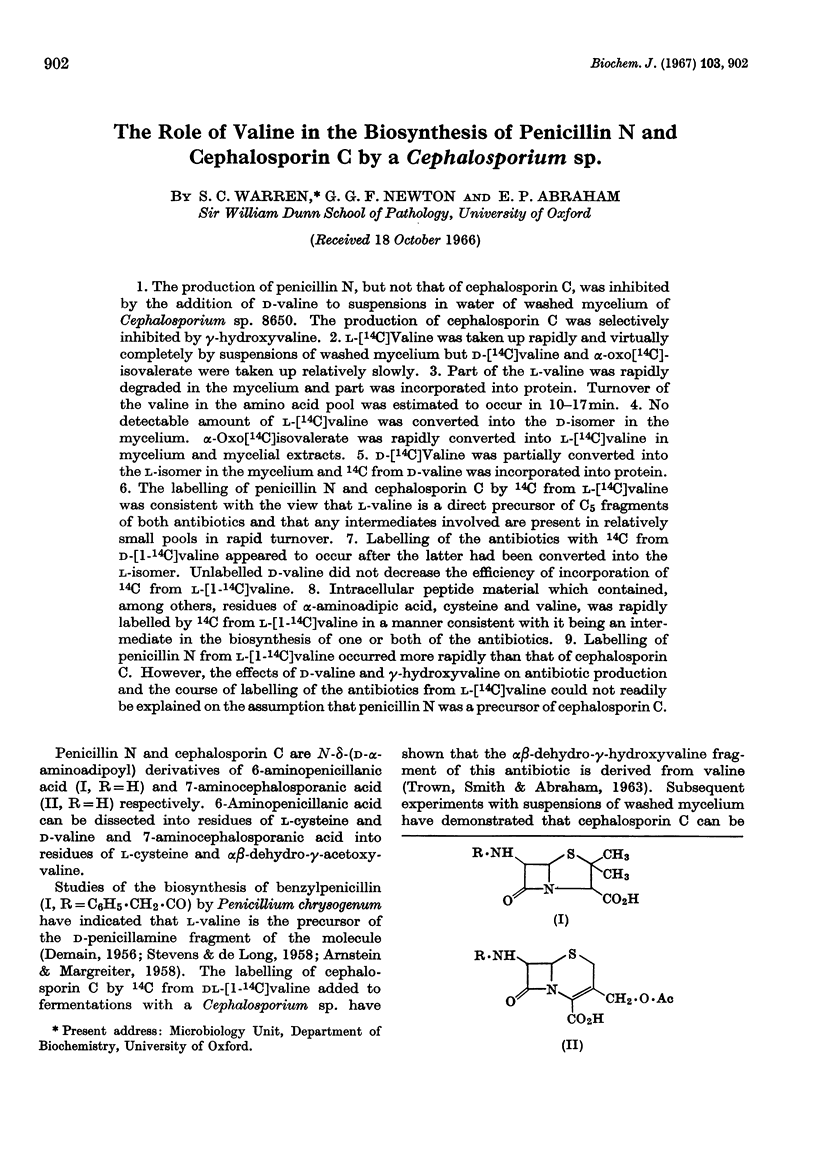
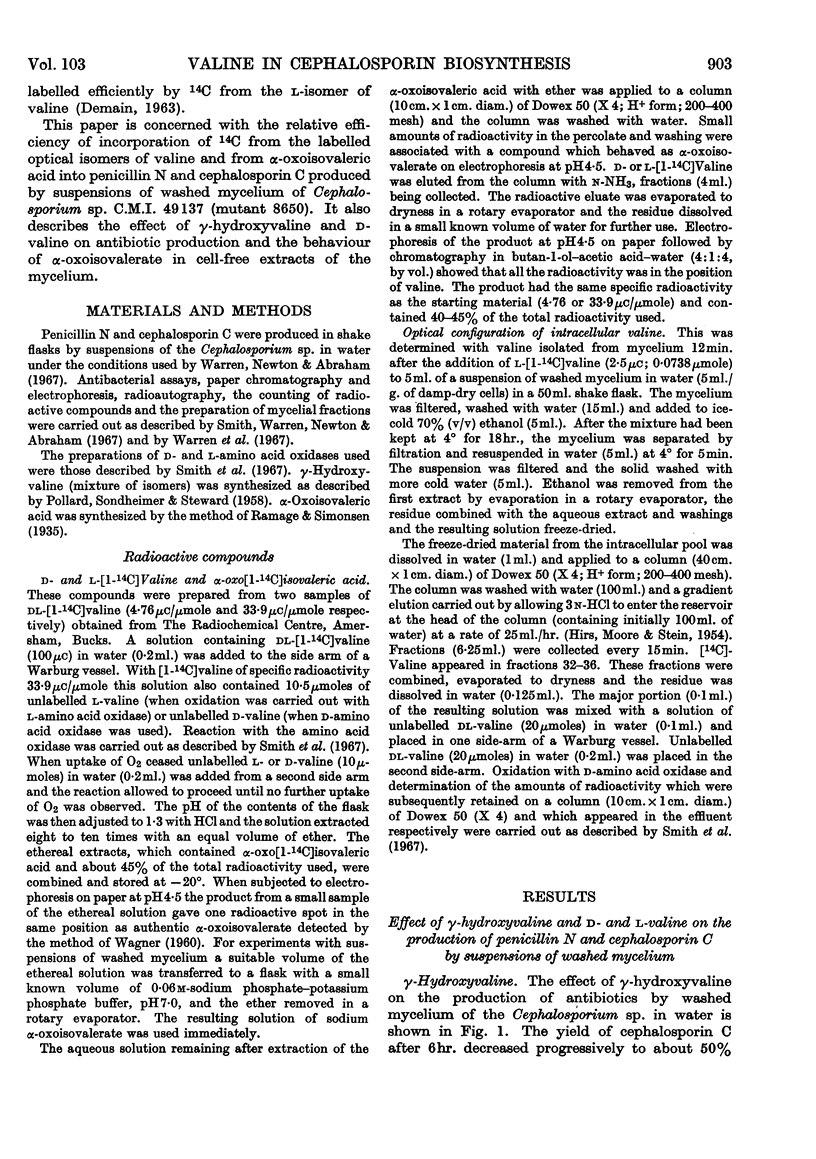
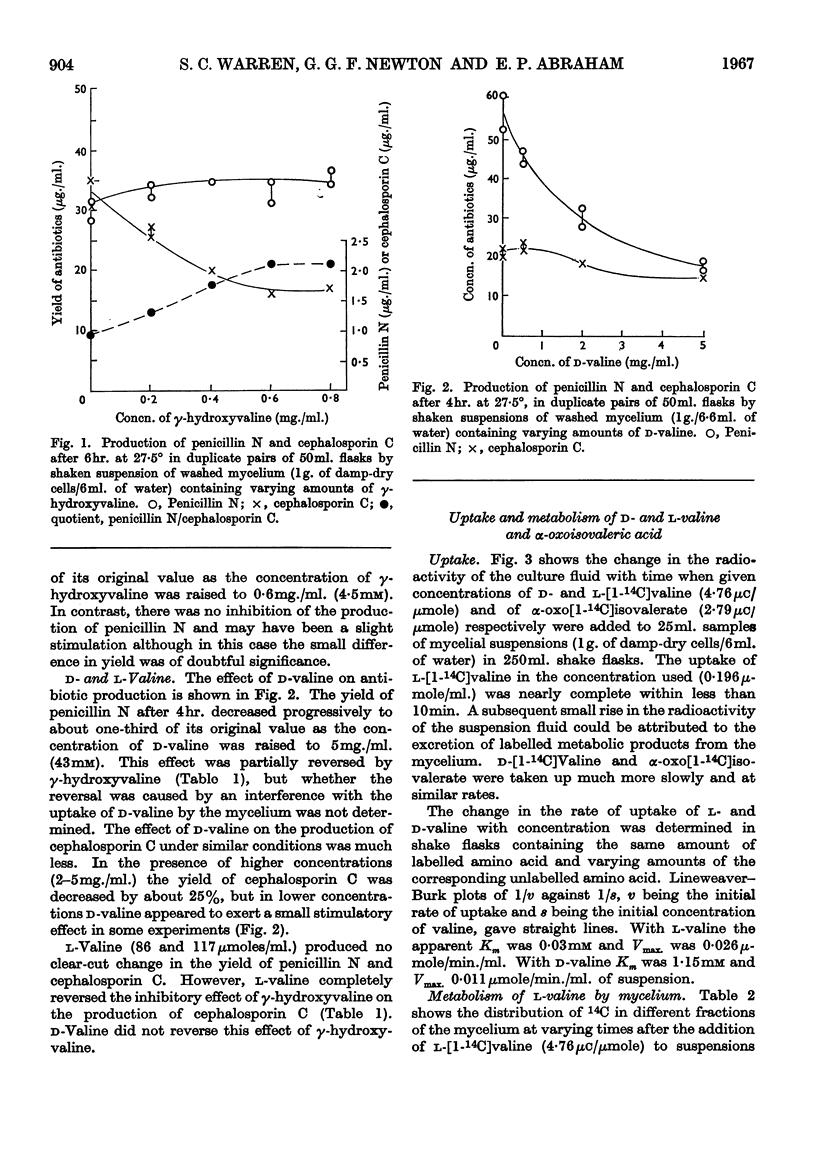
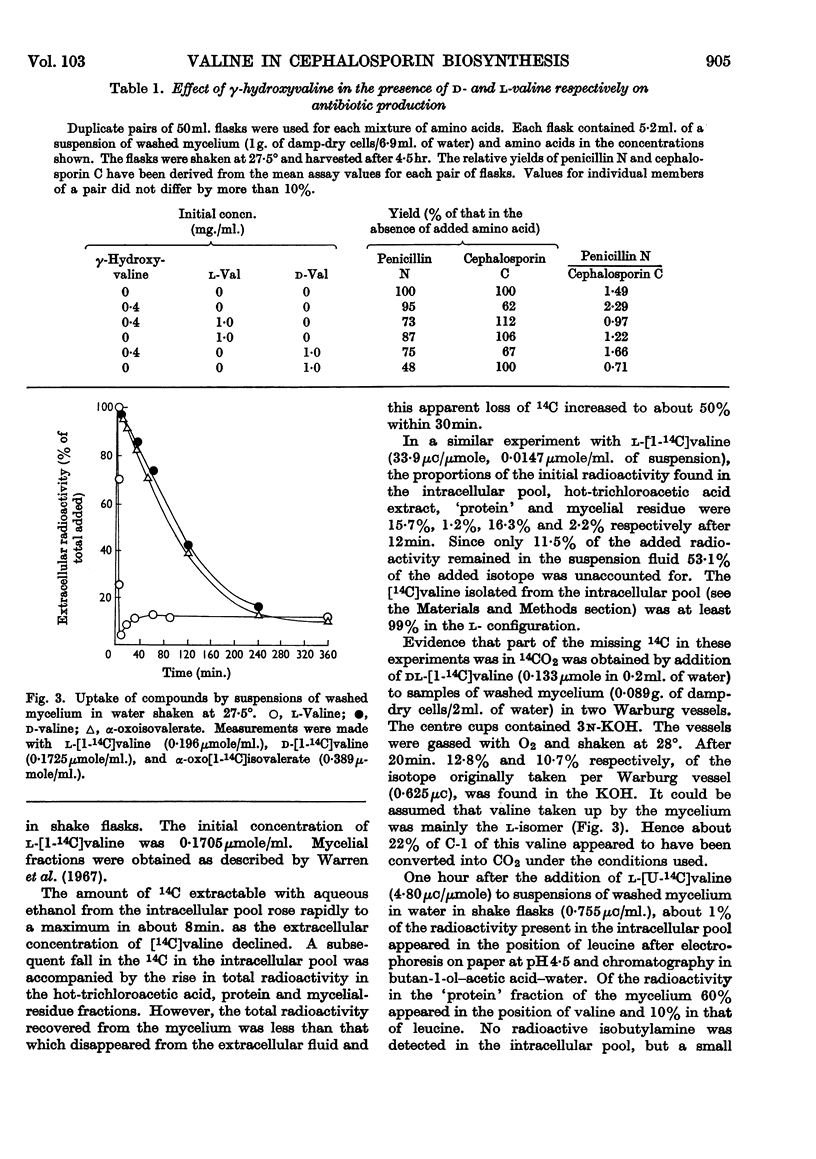
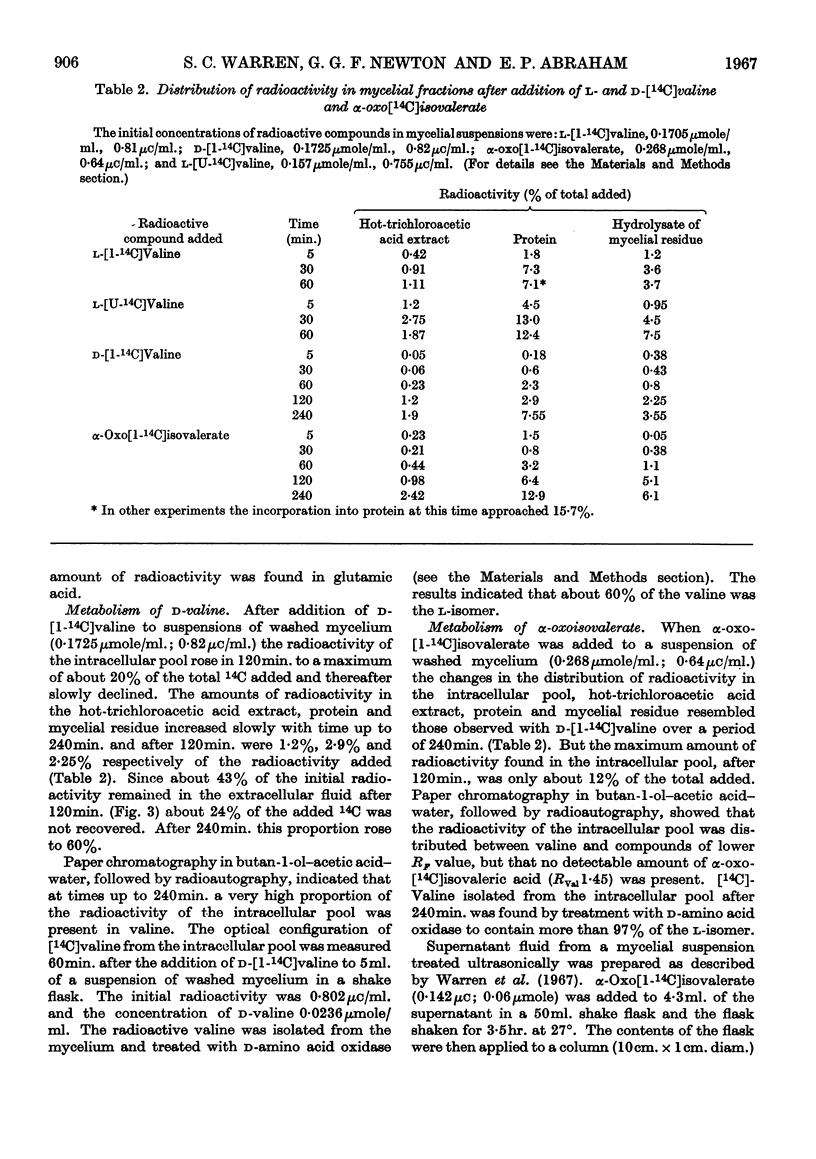
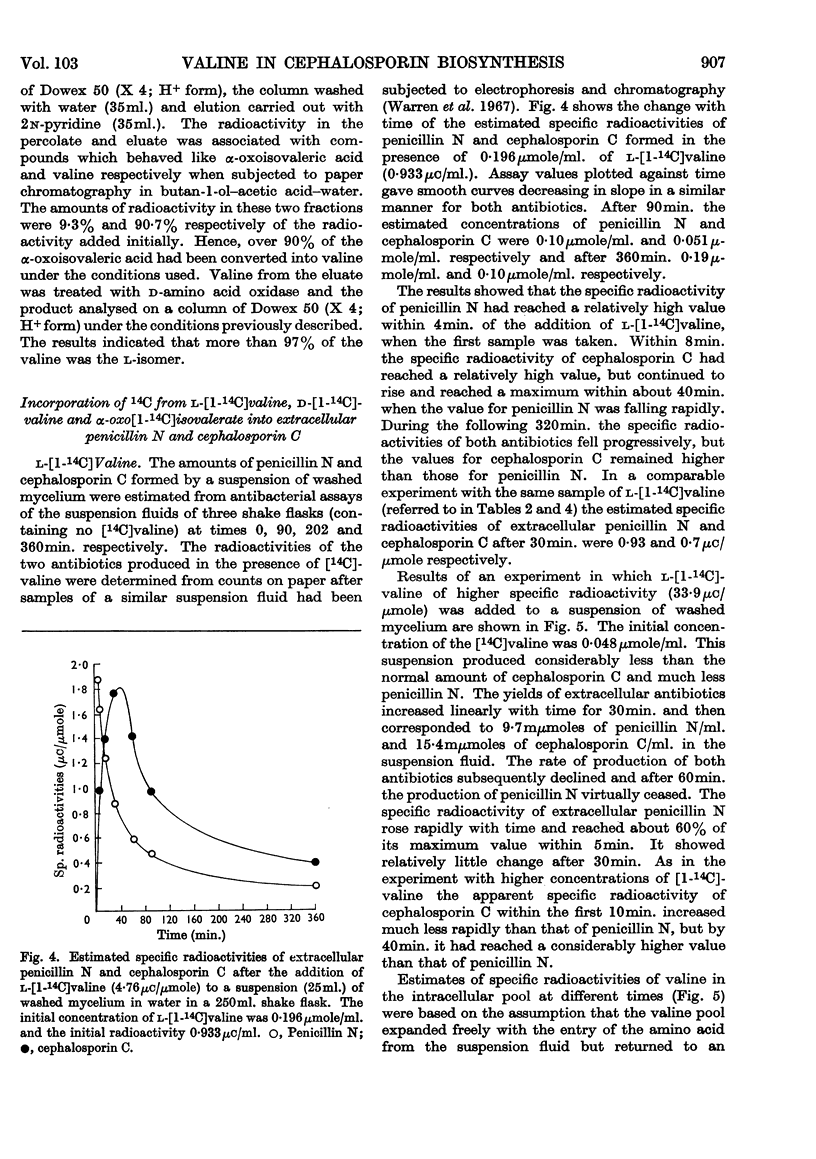
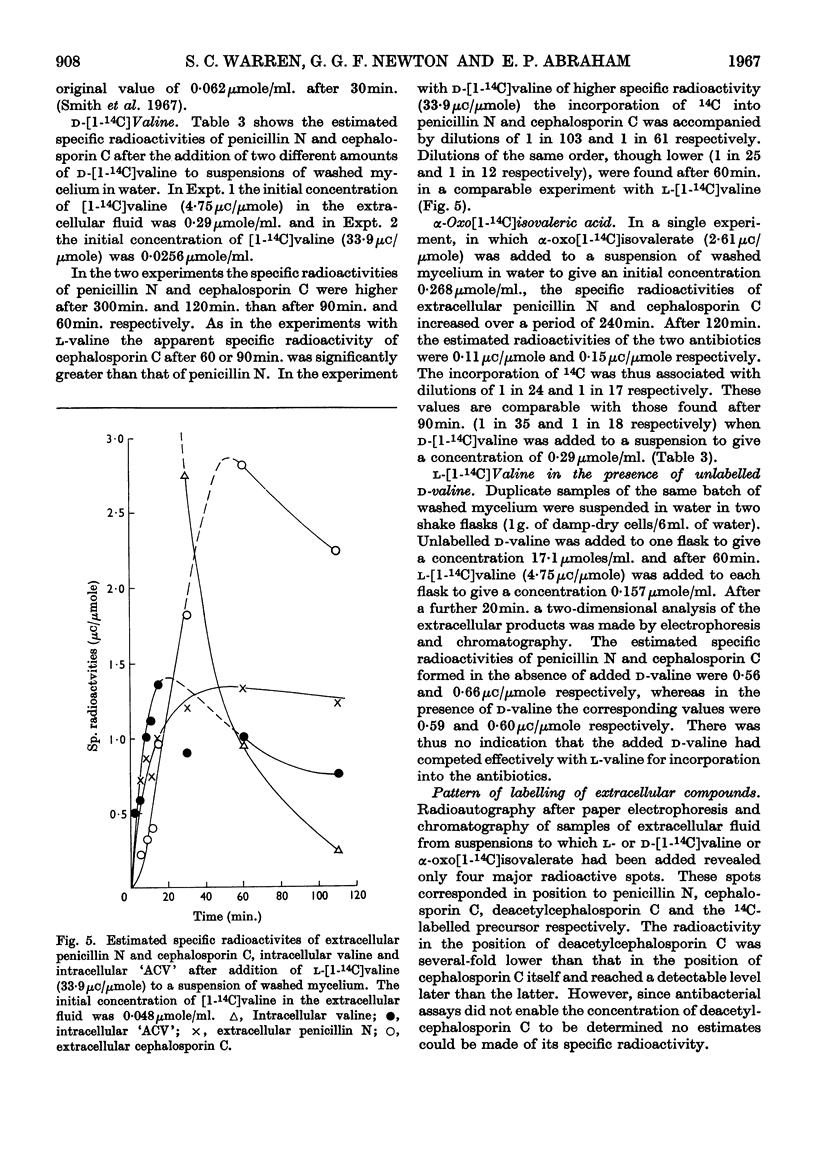
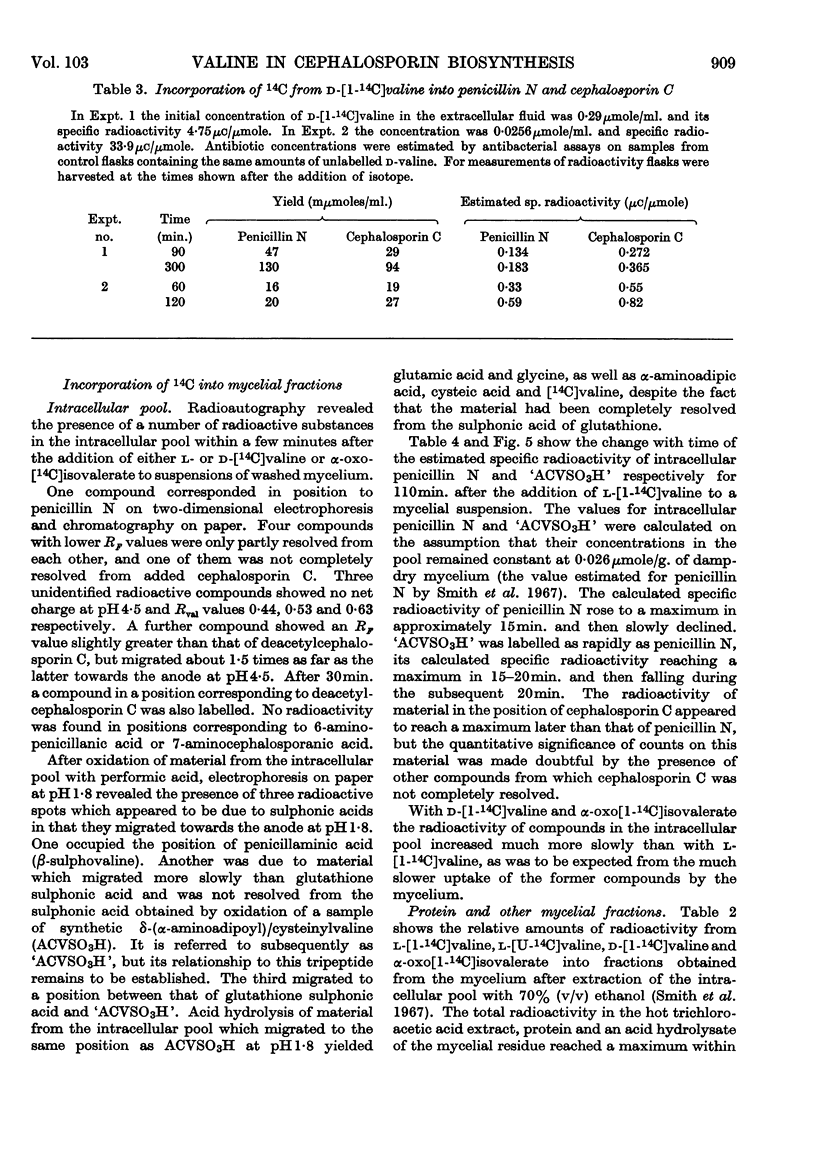
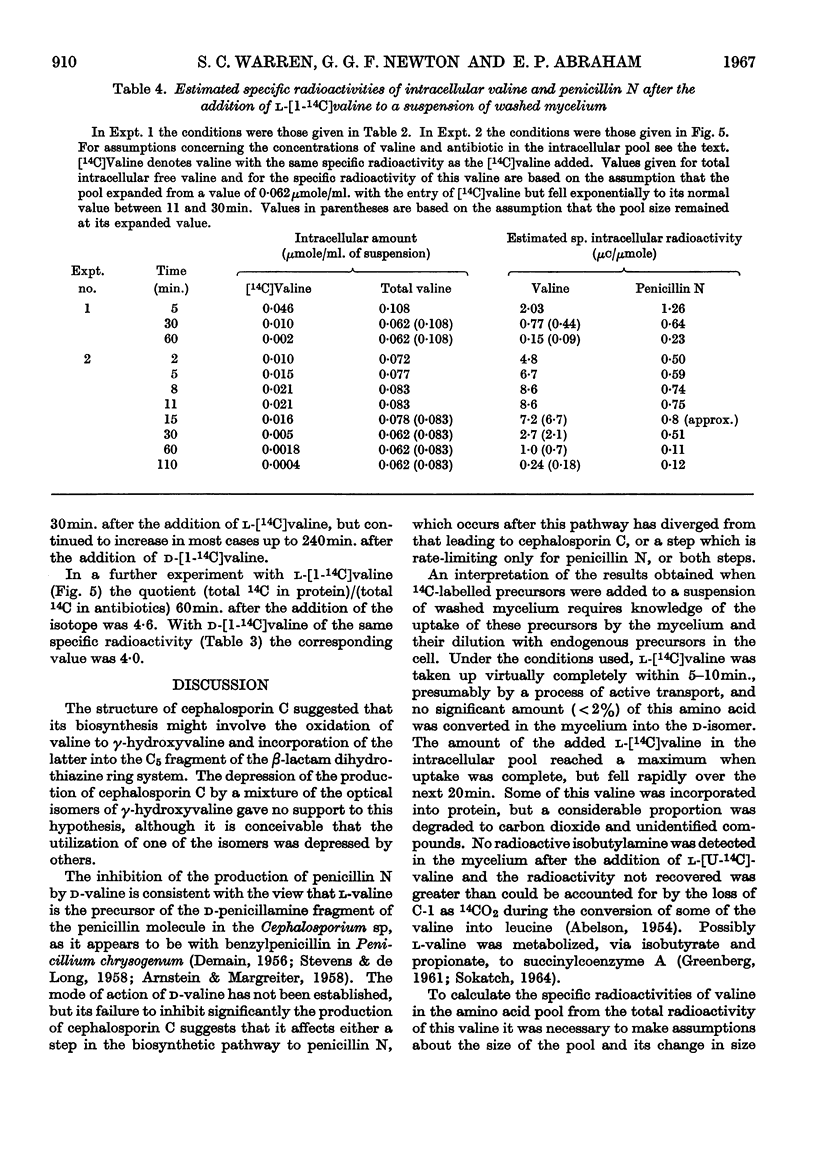
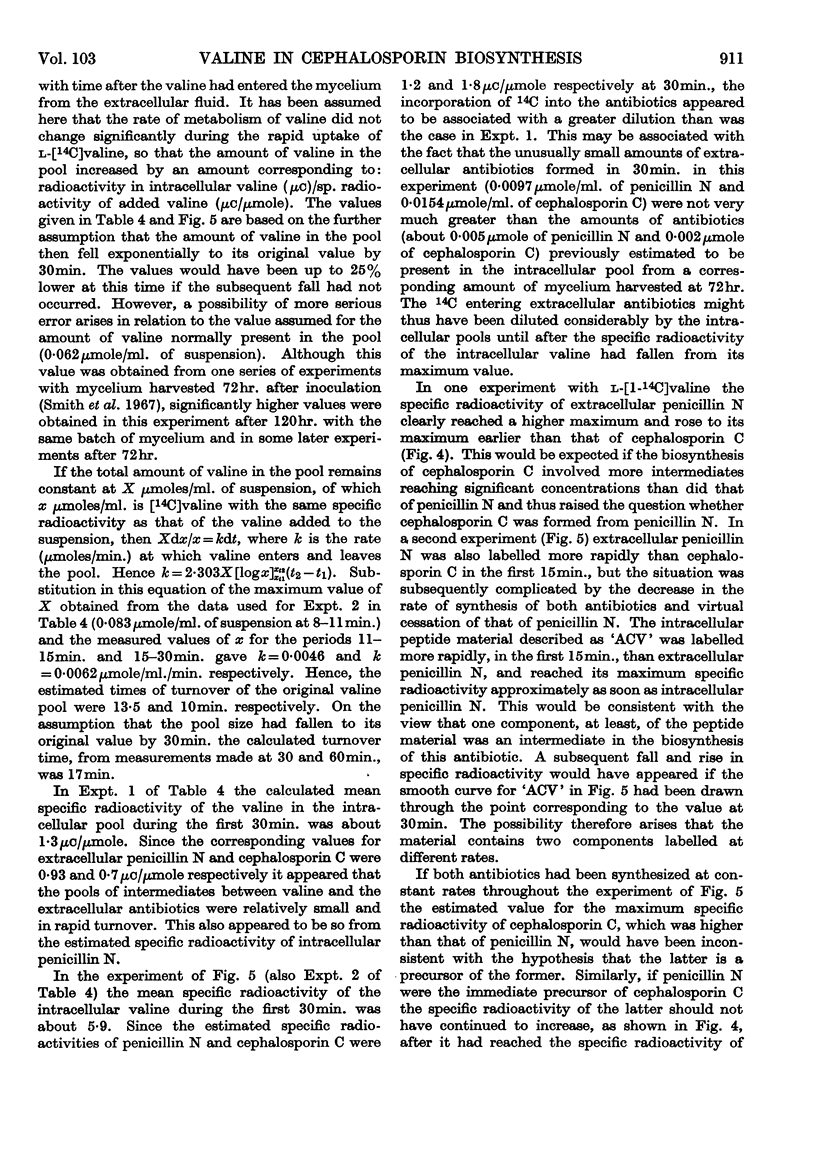
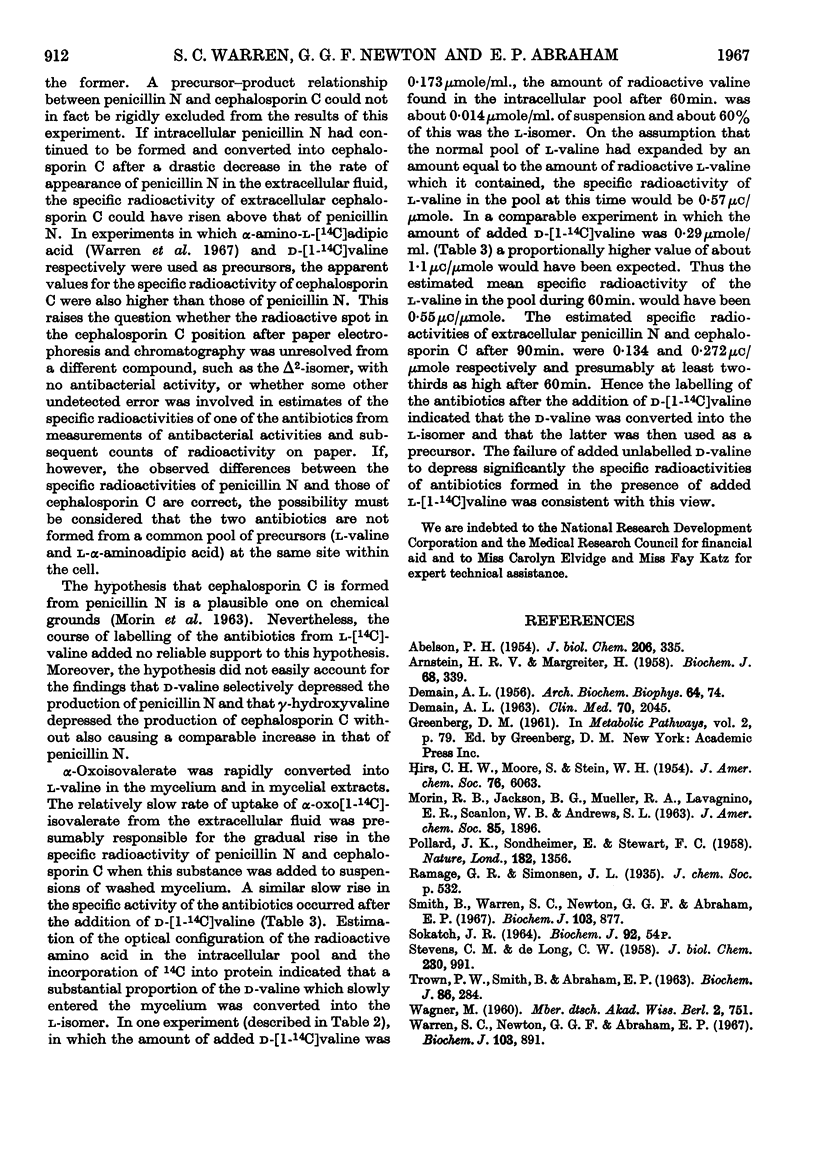
Selected References
These references are in PubMed. This may not be the complete list of references from this article.
- ABELSON P. H. Amino acid biosynthesis in Escherichia coli: isotopic competition with C14-glucose. J Biol Chem. 1954 Jan;206(1):335–343. [PubMed] [Google Scholar]
- ARNSTEIN H. R., MARGREITER H. The biosynthesis of penicillin. 7. Further experiments on the utilization of L-and D-valine and the effect of cystine and valine analogues on penicillin synthesis. Biochem J. 1958 Feb;68(2):339–348. doi: 10.1042/bj0680339. [DOI] [PMC free article] [PubMed] [Google Scholar]
- DEMAIN A. L. SYNTHESIS OF CEPHALOSPORIN C BY RESTING CELLS OF CEPHALOSPORIUM SP. Clin Med (Northfield) 1963 Nov;70:2045–2051. [PubMed] [Google Scholar]
- POLLARD J. K., SONDHEIMER E., STEWARD F. C. Hydroxyvaline in Kalanchoe daigremontiana. Nature. 1958 Nov 15;182(4646):1356–1358. doi: 10.1038/1821356a0. [DOI] [PubMed] [Google Scholar]
- STEVENS C. M., DE LONG C. W. Valine metabolism and penicillin biosynthesis. J Biol Chem. 1958 Feb;230(2):991–999. [PubMed] [Google Scholar]
- Smith B., Warren S. C., Newton G. G., Abraham E. P. Biosynthesis of penicillin N and cephalosporin C. Antibiotic production and other features of the metabolism of Cephalosporium sp. Biochem J. 1967 Jun;103(3):877–890. doi: 10.1042/bj1030877. [DOI] [PMC free article] [PubMed] [Google Scholar]
- TROWN P. W., SMITH B., ABRAHAM E. P. Biosynthesis of cephalosporin C from amino acids. Biochem J. 1963 Feb;86:284–291. doi: 10.1042/bj0860284. [DOI] [PMC free article] [PubMed] [Google Scholar]
- Warren S. C., Newton G. G., Abraham E. P. Use of alpha-aminoadipic acid for the biosynthesis of penicillin N and cephalosporin C by a Cephalosporium sp. Biochem J. 1967 Jun;103(3):891–901. doi: 10.1042/bj1030891. [DOI] [PMC free article] [PubMed] [Google Scholar]


